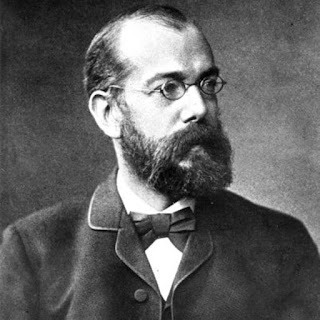Robert Koch - Wiki | Photos | Inventions | Postulates | Awards
Robert Koch - Wiki | Photos | Inventions | Postulates | Awards
Robert Heinrich Hermann Koch (11 December 1843 – 27 May 1910) was a German physician and microbiologist. As the founder of modern bacteriology, he is known for his role in identifying the specific causative agents of tuberculosis, cholera, and anthrax and for giving experimental support for the concept of infectious disease. Koch experimented with toxic medicines, including arsenic preparations, on colonial African subjects. In addition to his innovative studies on these diseases, which involved experimenting on humans, Koch created and improved laboratory technologies and techniques in the field of microbiology, and made key discoveries in public health. His research led to the creation of Koch's postulates, a series of four generalized principles linking specific microorganisms to specific diseases that remain today the "gold standard" in medical microbiology. As a result of his groundbreaking research on tuberculosis, Koch received the Nobel Prize in Physiology or Medicine in 1905. The Robert Koch Institute is named in his honour.
Early Life, Education and Awards
Robert Koch was born in Clausthal, Hanover, Germany, on 11th December,1843. Robert Koch nationality is German and he was studied in University of Gottingen. Robert Koch known for Discovery bacteriology Koch's postulates of germ theory Isolation of Anthrax, Tubercolosis and Cholera. He was awarded by ForMemRS in 1987 and Nobel Prize in Medicine in 1905. The Scientific career of Robert Koch in the field of Microbiology and the intitutions Imperial Health Office, Berlin and University of Berlin. Academic advisors of Robert Koch are Friedrich Gustav Jakob, Henle, Karl, Ewald Hasse, Rudolf Virchow. Robert Koch was died on 27th May 1910 (aged 66), Baden-Baden, Grand Duchy Of Baden.
Known For Inventions and Discovery
Koch developed a new experimental method to test whether a particular micro-organism is the cause of a disease. Building on Pasteur's work on germ theory, Koch used experiments to prove that the bacterium Bacillus anthracis was the cause of anthrax - the bacterium could be observed in the tissue of anthrax victims.
Robert Koch Photos and Signature
Robert Koch Postulates
 |
| Robert Koch Great Physician and Microbiologist |
Early Life, Education and Awards
Robert Koch was born in Clausthal, Hanover, Germany, on 11th December,1843. Robert Koch nationality is German and he was studied in University of Gottingen. Robert Koch known for Discovery bacteriology Koch's postulates of germ theory Isolation of Anthrax, Tubercolosis and Cholera. He was awarded by ForMemRS in 1987 and Nobel Prize in Medicine in 1905. The Scientific career of Robert Koch in the field of Microbiology and the intitutions Imperial Health Office, Berlin and University of Berlin. Academic advisors of Robert Koch are Friedrich Gustav Jakob, Henle, Karl, Ewald Hasse, Rudolf Virchow. Robert Koch was died on 27th May 1910 (aged 66), Baden-Baden, Grand Duchy Of Baden.
Known For Inventions and Discovery
Koch developed a new experimental method to test whether a particular micro-organism is the cause of a disease. Building on Pasteur's work on germ theory, Koch used experiments to prove that the bacterium Bacillus anthracis was the cause of anthrax - the bacterium could be observed in the tissue of anthrax victims.
Robert Koch Photos and Signature
 |
| Young Age Photo Of Robert Koch |
 |
| A Book on Robert Koch |
 |
| Old Age Photo of Robert Koch |
 |
| Robert Koch Signature |
Robert Koch Postulates
- The organism must always be present, in every case of the disease.
- The organism must be isolated from a host containing the disease and grown in pure culture.
- Samples of the organism taken from pure culture must cause the same disease when inoculated into a healthy, susceptible animal in the laboratory.
- The organism must be isolated from the inoculated animal and must be identified as the same original organism first isolated from the originally diseased host.



Comments
Post a Comment